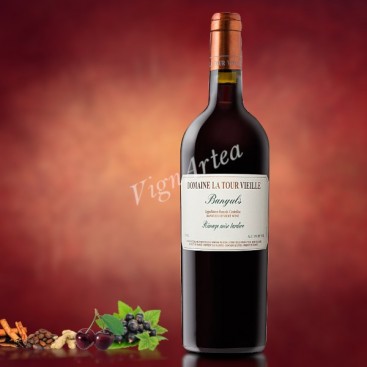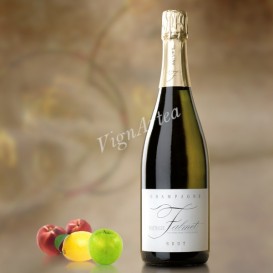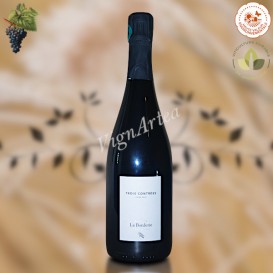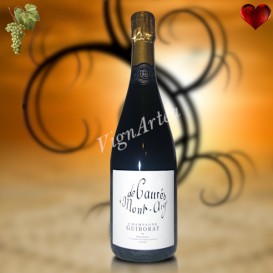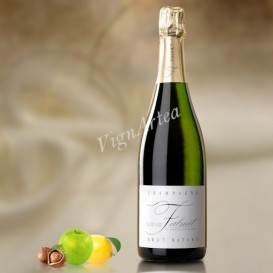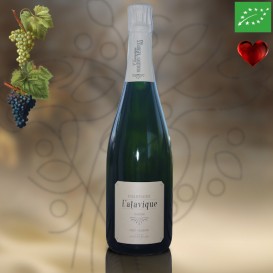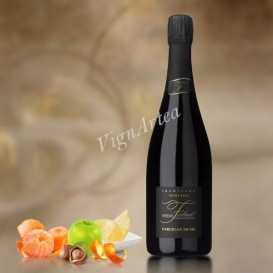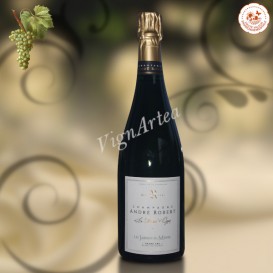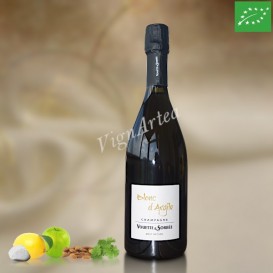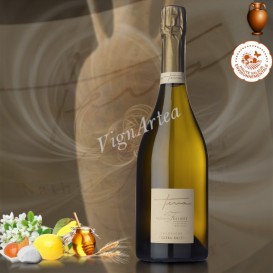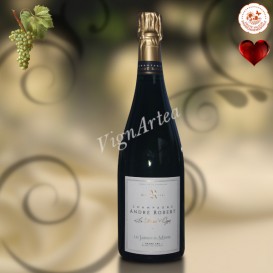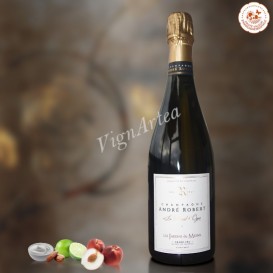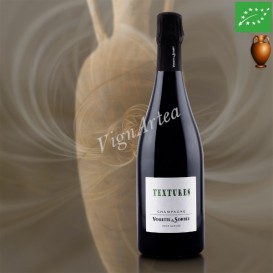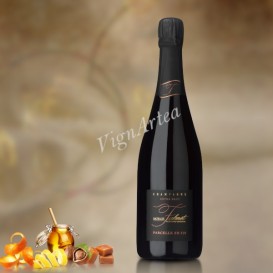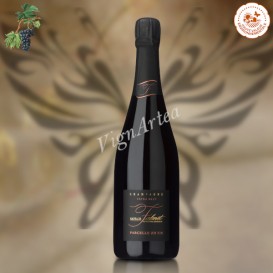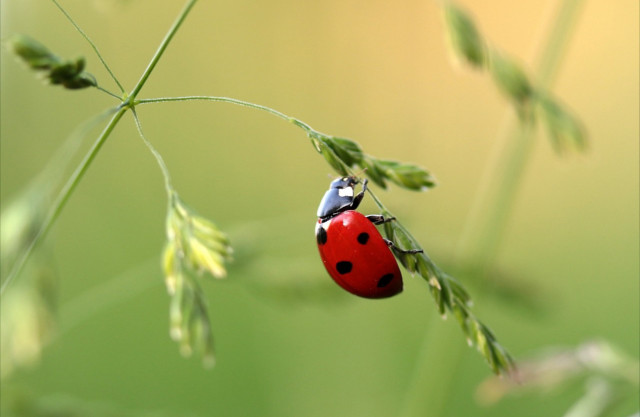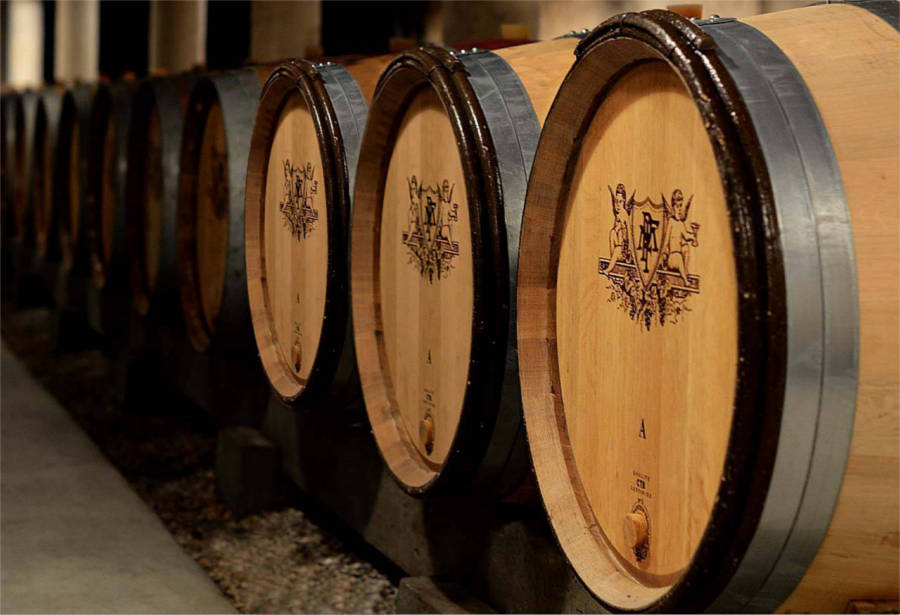BANYULS RIMAGE MISE TARDIVE 2018 (Domaine la Tour Vieille)
ROUSSILLON - AOP BANYULS - RED VIN DOUX NATUREL
Grape variety: Grenache noir (100%)
Fortified wine Ageing for 15 months in tunes
- Nose: intense. Aromas of cocoa, bitter orange, very ripe black cherry, blackcurrant, with a hint of spice (cinnamon, ginger).
- Palate: soft, pleasantly fragrant and tasty.
- Tasting date: May 2022
- OUR OPINION: this Banyuls rimage is said to be of late bottling because it matured in casks for 15 months, during which it gains in complexity and aromatic richness. Its candied fruit aromas are a delight!
DESCRIPTION
The BANYULS RIMAGE MISE TARDIVE wine is a red vin doux naturel made from Grenache noir with a very small amount of Carignan.
"Rimage" means "wine of the year" in Catalan, but the mention "mise tardive" indicates a longer maturation than the classical BANYULS RIMAGE: if the BANYULS RIMAGE MISE TARDIVE is vinified exactly the same way as the BANYULS RIMAGE (mutage on grains), the big difference is at the level of the ageing phase because the BANYULS RIMAGE MISE TARDIVE is matured 15 months in tunes where the BANYULS RIMAGE spends only a few months in oxygen-free tanks.
TERROIR
The soils that make up the Domaine La Tour Vieille vineyard are among the oldest terroirs in Europe, since their formation dates back to the primary era, and more precisely a period ranging from the Ediacaran (-635 to -540 My) to the Cambrian (-540 to -488 My).
The rocks of the Collioure and Banuyls vineyards are of the metasedimentary type, i.e. a sedimentary rock formed by sediments deposition and solidification, then subjected to an increase in temperature and pressure during tectonic movements which will create modifications in its mineral composition as well as its structure.
The terroir on which the vines of this wine are planted dates from the Cambrian period and, compared to the Collioure terroir, it marks a break in sedimentation conditions with disappearance of the volcanic component and appearance of pelites, i.e. sedimentary rocks that have evolved in a lacustrine or marine environment.
They are called the série de Jujols, which shows a lower metamorphism than the série de Canaveilles (Collioure terroir).
WINEGROWING & WINEMAKING
The Côte Vermeille vineyard is organised on terraces and requires exclusively manual and sustainable winegrowing works as it limits the interventions in the vineyard.
The low rainfall, the sunshine and the tramontana wind are the major assets of the region which allow the estate to obtain grapes of an excellent sanitary quality without having to use synthetic phytosanitary products.
The vines are therefore cared for and treated in accordance with the Organic Agriculture specifications, even if the estate is not officially certified by Ecocert.
The grapes are harvested by hand when they are slightly overripe. They are then destemmed and vatted so that the alcoholic fermentation can begin.
The latter is, after a few days, voluntarily stopped by adding to the must a neutral wine alcohol of at least 96% vol., within the limit, evaluated in pure alcohol, of minimum 5% and maximum 10% of the concerned must volume. This operation has the effect of killing the fermenting yeasts and preserving the grape sugars.
Maceration continues after the mutage, the presence of alcohol allowing a gentle extraction of the aromas.
The must is then pressed and racked into tunes for a 15-month ageing period which will complexify its fruity aromas and soften its tannins. The oak being porous, it will benefit from micro-oxygenation allowing a soft ageing and a nice evolution of its aromas.
When the ageing is over, the must is racked and bottled.
| Country | Languedoc Roussillon |
| Color | Red |
| Orange wines | No |
| Clay amphorae wines | No |
| Type | Sweet |
| Vintage | 2018 |
| Capacity | 75 cl |
| Single Grape Variety | Grenache noir |
| Alcohol rate | 16% |
| Quality Designation | Banyuls |
| Cellar Potential | 20 years. |
| Service advise | 8-10°C (46-50°F). |
| Culture Methods | Sustainable cultivation method |
| Fining | No |
| Filtering | Yes |
| Comments | The mutage operation is carried out on the grapes during maceration phase ♦ The must is then aged for 15 months in tunes before bottling. |

